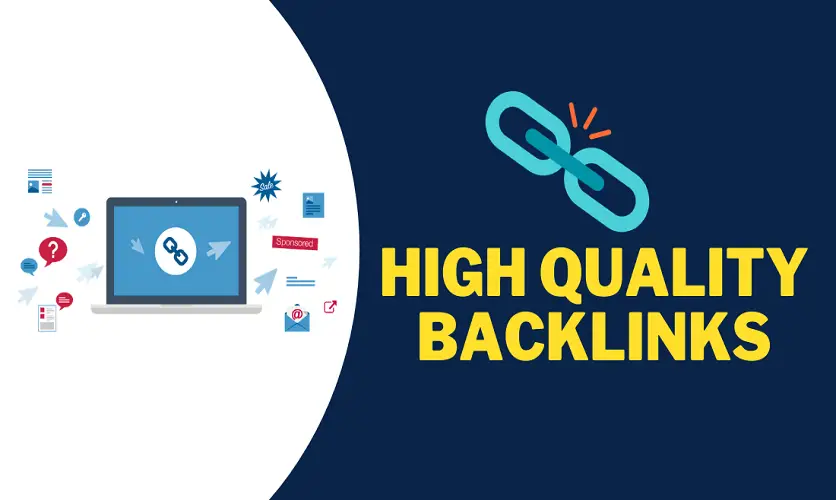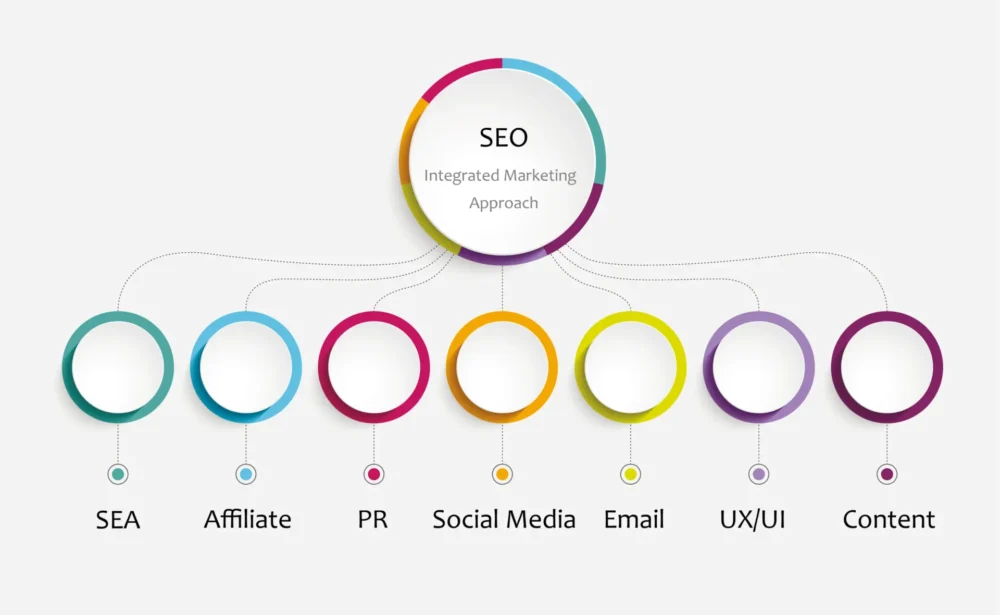Ultimate Guide to SEO for Affiliate Marketing

Search engine optimization (SEO) is a game-changer in the world of affiliate marketing. It's the secret sauce that can drive a steady stream of targeted traffic to your affiliate website or blog, ultimately boosting your earnings. In this digital age, mastering SEO is no longer an option – it's a necessity for any affiliate marketer who wants to stay ahead of the competition.
Think about it: when was the last time you scrolled past the first page of search results? Probably never, right? That's because the top-ranking pages have won the trust of search engines like Google, and they're the ones that get the most eyeballs (and clicks!). With SEO on your side, you can climb the ranks and position your affiliate content in front of your ideal audience, resulting in more conversions and commissions.
Understanding SEO Basics

Before we dive into the nitty-gritty of SEO for affiliate marketing, let's cover the basics. SEO is the practice of optimizing your website or content to rank higher in search engine results for specific keywords or phrases. It's like a game of chess, where you need to play your moves strategically to outrank your competitors.
The key elements of SEO include:
- Keywords: These are the words or phrases that people type into search engines when looking for information, products, or services related to your niche.
- Content: High-quality, informative, and engaging content is the backbone of any successful SEO strategy. Search engines love fresh, relevant, and valuable content that keeps users coming back for more.
- Backlinks: These are links from other websites that point to your site or content. They act as “votes of confidence” in the eyes of search engines, signaling that your content is trustworthy and authoritative.
- Technical Optimization: This refers to aspects like site speed, mobile-friendliness, and website architecture, which can impact your search engine rankings.
Now, let's tie this all together with affiliate marketing. As an affiliate marketer, your goal is to promote products or services from various companies and earn a commission for each sale or lead generated. By implementing effective SEO strategies, you can drive targeted traffic to your affiliate content, increasing the chances of conversions and, ultimately, earning those sweet, sweet commissions.
Keyword Research for Affiliate SEO
Keyword research is the foundation of any successful SEO strategy, and it's particularly crucial for affiliate marketers. After all, you need to identify the keywords that your target audience is using to search for products or services related to your affiliate offers.
Here are some tips for effective keyword research in the realm of affiliate marketing:
- Understand Your Niche: Start by immersing yourself in your niche market. What are the common pain points, questions, or interests of your target audience? This will help you uncover relevant keyword ideas.
- Use Keyword Research Tools: Tools like Google Keyword Planner, SEMrush, Ahrefs, and Ubersuggest can provide valuable insights into search volume, competition levels, and related keyword ideas.
- Focus on Long-Tail Keywords: While high-volume, broad keywords are tempting, they're often highly competitive and may not align with user intent. Instead, target long-tail keywords (phrases with three or more words) that are more specific and have a higher likelihood of converting.
- Analyze Competitor Keywords: Study the keywords that your top-ranking competitors are targeting. You can use tools like Ahrefs or SEMrush to uncover their top-performing keywords and identify opportunities for your own content.
- Consider User Intent: When evaluating keywords, think about the user's intent behind the search query. Are they looking to buy a product, research information, or find a solution to a problem? Align your content and keyword strategy accordingly.
Effective keyword research will not only help you attract the right kind of traffic to your affiliate content but also ensure that you're targeting prospects who are more likely to convert into paying customers.
On-Page SEO for Affiliate Websites

On-page SEO refers to the optimization techniques you apply directly to your website or content to improve its visibility and relevance for specific keywords. For affiliate marketers, this is crucial for ensuring that both search engines and users can easily understand and navigate your content.
Here are some essential on-page SEO strategies for affiliate websites:
- Optimize Meta Tags: Meta tags, including the title tag and meta description, are the snippets that appear in search engine results. Crafting compelling and keyword-optimized meta tags can significantly improve your click-through rates.
- Utilize Headings and Formatting: Breaking up your content with descriptive headings (H1, H2, H3, etc.) and formatting elements like bullet points and bold text can improve readability and highlight important information for both users and search engines.
- Incorporate Keywords Strategically: While keyword stuffing is a big no-no, strategically incorporating your target keywords into your content (headings, introductions, conclusions, image alt text, etc.) can signal relevance to search engines.
- Focus on User Experience: Google and other search engines prioritize websites that provide an excellent user experience. Factors like page load speed, mobile-friendliness, and engaging content can all contribute to better rankings and higher dwell times (the amount of time users spend on your site).
- Create Compelling Product Reviews and Comparisons: As an affiliate marketer, product reviews and comparisons are likely to be your bread and butter. By crafting in-depth, informative, and SEO-friendly reviews, you can attract more targeted traffic and establish yourself as an authority in your niche.
On-page SEO is an ongoing process, and it's essential to stay up-to-date with the latest best practices and algorithm updates from search engines. By optimizing your affiliate content for both search engines and users, you'll be well on your way to driving more qualified traffic and boosting your affiliate earnings.
Creating High-Quality Content for Affiliate SEO
Content is king in the world of SEO, and this adage holds true for affiliate marketing as well. Search engines have become increasingly sophisticated in their ability to identify and reward high-quality, informative, and engaging content. As an affiliate marketer, creating compelling content should be a top priority if you want to rank well and attract your target audience.
Here are some strategies for creating high-quality content that will boost your affiliate SEO efforts:
- Provide Value: Your content should offer genuine value to your readers. Whether it's a comprehensive product review, an informative tutorial, or an in-depth guide, make sure your content is informative, actionable, and solves a specific problem or addresses a pain point for your audience.
- Focus on Readability: No one enjoys reading a wall of text. Break up your content with descriptive headings, bullet points, and visuals like images or videos. Use short paragraphs and simple language to ensure your content is easy to consume and understand.
- Incorporate Multimedia: Visuals like product images, infographics, and videos can enhance the overall user experience and make your content more engaging. They also provide additional opportunities for optimization through alt text and video transcripts.
- Stay Up-to-Date: In the world of affiliate marketing, new products, trends, and updates are constantly emerging. Make sure your content is timely and relevant by regularly updating existing content or creating new pieces to reflect the latest developments in your niche.
- Leverage User-Generated Content: Encourage your audience to contribute to your content through product reviews, comments, or user-submitted photos. This not only adds fresh, unique content to your site but also helps build trust and credibility with your readers.
Remember, high-quality content is not just about ranking well – it's also about providing value to your audience and establishing yourself as a trusted authority in your niche. By consistently creating informative and engaging content, you'll not only improve your affiliate SEO efforts but also build a loyal following of readers who are more likely to convert into paying customers.
Building Backlinks for Affiliate SEO

Backlinks are like votes of confidence from other websites, signaling to search engines that your content is valuable and trustworthy. In the world of affiliate marketing, building a strong backlink profile can be a game-changer for improving your search engine rankings and driving more targeted traffic to your affiliate content.
Here are some effective strategies for earning quality backlinks as an affiliate marketer:
- Guest Posting: Reach out to relevant blogs or websites in your niche and offer to contribute a high-quality guest post. Not only can this help you earn valuable backlinks, but it can also expose your brand to a new audience and establish you as an authority in your field.
- Influencer Outreach: Collaborate with influencers or thought leaders in your niche by offering them affiliate opportunities or sponsorships. In exchange, they may be willing to link back to your content or promote your affiliate offerings to their followers.
- Create Linkable Assets: Develop valuable resources like in-depth guides, case studies, or industry reports that other websites will want to link to. These “linkable assets” can attract natural backlinks and establish your site as a go-to resource in your niche.
- Broken Link Building: Identify broken links on relevant websites and reach out to the site owners, offering your own high-quality content as a replacement. This can be a win-win situation, as you'll earn a valuable backlink while also providing value to the site owner.
- Build Relationships: Engage with other bloggers, influencers, and website owners in your niche by commenting on their blogs, sharing their content on social media, or collaborating on joint projects. These relationships can lead to natural backlink opportunities down the line.
It's important to remember that quality trumps quantity when it comes to backlinks. Focus on earning backlinks from reputable, relevant, and authoritative websites within your niche. Avoid any black hat or spammy tactics, as these can harm your search engine rankings and credibility in the long run.
Technical SEO for Affiliate Websites
While the content and backlinks are crucial components of affiliate SEO, technical optimization is equally important. Search engines prioritize websites that provide a seamless user experience and meet technical best practices. As an affiliate marketer, neglecting technical SEO can be detrimental to your search engine rankings and overall website performance.
Here are some technical SEO considerations for affiliate websites:
- Site Speed Optimization: Slow-loading websites can lead to higher bounce rates and negatively impact your search engine rankings. Optimize your site speed by compressing images, minifying code, and leveraging browser caching techniques.
- Mobile-Friendliness: With the majority of internet traffic now coming from mobile devices, it's essential to ensure your affiliate website is optimized for mobile users. Use responsive design, streamline navigation, and prioritize page speed for a seamless mobile experience.
- Site Architecture and Navigation: A well-structured site architecture and intuitive navigation can improve the user experience and make it easier for search engines to crawl and index your content. Use clear hierarchies, breadcrumb trails, and internal linking strategies to enhance your site's architecture.
- Structured Data and Rich Snippets: Implementing structured data markup (such as Schema.org) can help search engines better understand the content on your site and display rich snippets in search results, potentially increasing click-through rates.
- SSL Encryption and Security: Search engines prioritize secure websites, particularly for e-commerce and affiliate sites that handle sensitive information. Implementing SSL encryption (HTTPS) and addressing any security vulnerabilities can boost your credibility and search engine rankings.
- Crawlability and Indexability: Ensure that your website is easily crawlable and indexable by search engines. This includes submitting an XML sitemap, optimizing robots.txt files, and addressing any crawl errors or duplicate content issues that may hinder indexing.
While technical SEO may seem daunting, it's essential for ensuring that your affiliate content is accessible, user-friendly, and optimized for search engines. By addressing these technical aspects, you'll not only improve your search engine visibility but also provide a better overall experience for your website visitors.
Leveraging Social Media for Affiliate SEO

Social media platforms can be powerful allies in your affiliate SEO efforts. Not only can they help amplify your content and drive additional traffic to your website, but they can also contribute to building backlinks and improving your overall online visibility.
Here are some strategies for leveraging social media to boost your affiliate SEO:
- Content Promotion: Share your affiliate content, product reviews, and guides across your social media channels. This can help increase visibility, drive traffic to your website, and potentially attract backlinks from followers who find your content valuable.
- Influencer Collaborations: Partner with influencers or thought leaders in your niche to promote your affiliate offerings or co-create content. This can expose your brand to a new audience and potentially earn backlinks from the influencer's platform or mentions.
- Engage with Your Audience: Don't just use social media as a one-way broadcasting channel. Engage with your followers by responding to comments, asking questions, and participating in relevant conversations. This can help build a loyal community and foster a positive brand reputation.
- Leverage Social Signals: While social signals (likes, shares, comments) may not directly impact search engine rankings, they can contribute to increased visibility and credibility. The more engagement your content receives on social media, the more likely it is to attract backlinks and catch the attention of search engines.
- Optimize Social Profiles: Ensure that your social media profiles are fully optimized with relevant keywords, descriptions, and links back to your website or affiliate content. This can help improve your overall online presence and discoverability.
It's important to remember that social media is a long-term strategy, and success requires consistent effort and engagement. By consistently sharing valuable content, engaging with your audience, and leveraging influencer collaborations, you can gradually build a strong social media presence that contributes to your affiliate SEO efforts.
Tracking and Analyzing SEO Performance
As with any marketing strategy, tracking and analyzing your SEO performance is crucial for understanding what's working, what's not, and where you can improve. In the world of affiliate marketing, monitoring your SEO metrics can help you optimize your strategies, identify growth opportunities, and ultimately increase your affiliate earnings.
Here are some key metrics and tools to consider for tracking and analyzing your affiliate SEO performance:
- Google Analytics: This powerful (and free!) tool from Google provides a wealth of data on your website traffic, user behavior, and conversion rates. By setting up goal tracking and analyzing metrics like bounce rates, time on site, and traffic sources, you can gain valuable insights into the performance of your affiliate content and SEO efforts.
- Google Search Console: Formerly known as Google Webmaster Tools, this platform provides valuable data on how Google crawls, indexes, and ranks your website. You can monitor your search traffic, identify any technical issues, and submit sitemaps to ensure your content is properly indexed.
- Keyword Ranking Tracking: Tools like SEMrush, Ahrefs, or Moz Pro can help you track your keyword rankings and monitor your progress over time. This data can inform your content and keyword strategy, allowing you to double down on what's working and adjust approaches for underperforming keywords.
- Backlink Analysis: Backlink analysis tools like Ahrefs or Moz can provide insights into your backlink profile, helping you identify new link-building opportunities, monitor competitor backlinks, and track the quality and relevance of your existing backlinks.
- Heat Maps and User Recordings: Tools like Hotjar or Crazy Egg can provide valuable data on how users interact with your affiliate content, including heat maps that show where they click or scroll, and user recordings that visually demonstrate their browsing behavior. This information can help you optimize your content for better user experience and conversions.
Regularly analyzing your SEO performance data can help you identify areas for improvement, understand your audience's behavior, and make data-driven decisions to refine your affiliate marketing strategies. Remember, SEO is an ongoing process, and continuous monitoring and optimization are key to staying ahead of the competition.
Staying Updated with SEO Trends and Algorithm Changes
The world of SEO is constantly evolving, with search engines like Google regularly updating their algorithms and introducing new ranking factors. As an affiliate marketer, staying up-to-date with these changes is crucial for maintaining your search engine visibility and adapting your strategies accordingly.

Here are some tips for staying informed about SEO trends and algorithm updates:
- Follow Industry Blogs and Publications: Subscribe to reputable SEO blogs, newsletters, and industry publications that provide insights and analysis on the latest algorithm updates, trends, and best practices. Some great resources include Search Engine Land, Moz Blog, Ahrefs Blog, and the Google Webmaster Central Blog.
- Attend Conferences and Webinars: Participate in industry events, conferences, and webinars where leading SEO experts share their knowledge and insights. These events can be invaluable for learning about emerging trends and networking with other professionals in the field.
- Join Online Communities and Forums: Engage with fellow affiliate marketers and SEO professionals in online communities and forums like Reddit's /r/SEO, the Warrior Forum, or various Facebook groups. These platforms can provide a wealth of information, tips, and discussions on the latest industry developments.
- Experiment and Test: Don't just rely on second-hand information – conduct your own experiments and tests to understand how algorithm changes or new SEO strategies impact your affiliate content. This hands-on approach can provide valuable insights and help you stay ahead of the curve.
- Monitor Your Analytics and Search Console: Regularly monitor your website analytics and Google Search Console data for any significant changes or fluctuations in traffic, rankings, or crawl errors. These changes could be indicators of algorithm updates or penalties, prompting you to investigate further and adjust your strategies accordingly.


